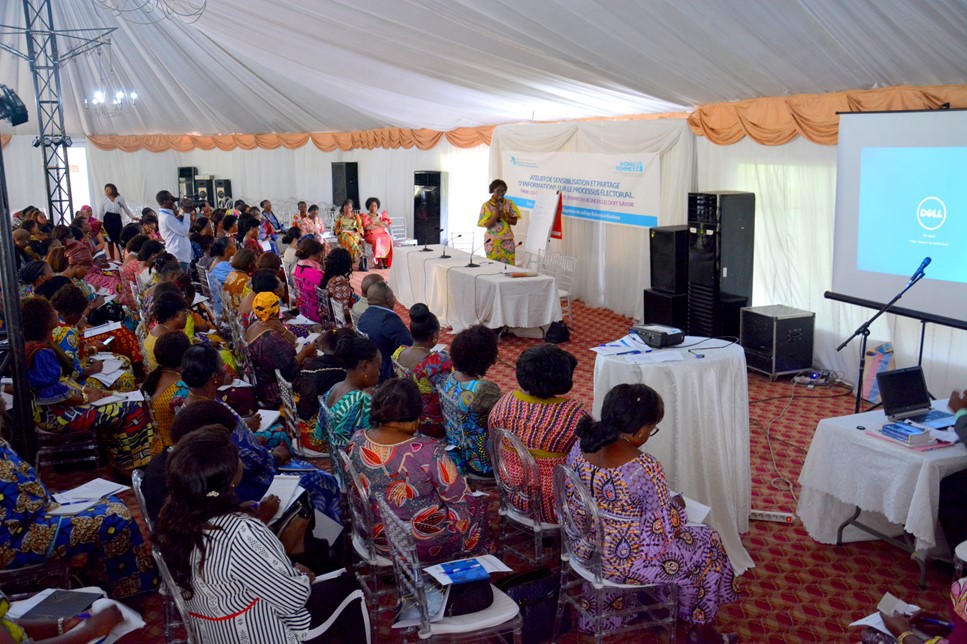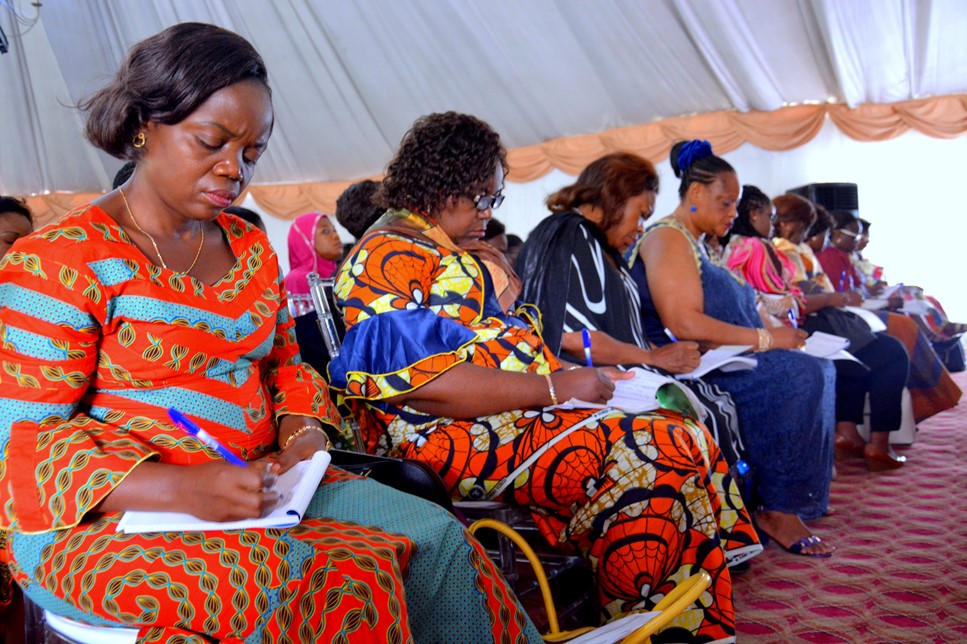What the candidate needs to know – In the run-up to the elections, women and girls candidates inquire about the electoral process
Date:

Kinshasa – As the Independent National Electoral Commission – CENI prepares to open the Reception and Processing Offices (BRTC) of applications, 450 potential women candidates met to examine the procedures related to the various innovations of the electoral law and to get informed about the process of building up their files in order to understand the electoral system and develop effective strategies to appear on electoral lists.
This session was organized by the CENI and UN Women, in collaboration with UNDP/PASEC as well as other civic education partners (Couterpart, La Voix des sans voie, Gender Consultation Bureau, INADES Formation, etc.) who continue to invest on issues related to women's participation in the electoral process. In the message of UN Women Representative, which was read by Ms. Clémentine Sangana Biduaya, she was keen to welcome this timely initiative and the involvement of all partners.
Véronique Umba, Gender Adviser to the Questeur, read the the CENI Questeur’s message in which she reminded the importance of men's involvement in supporting women candidates and urged women not to dismiss them.
In her presentation, Mrs. Anne Marie Mukwayanzo, Provincial Executive Secretary of CENI Kinshasa recalled the state of play of the electoral process, the legal, political, techno-logistical and security challenges as well as the outlined electoral calendar. As for Ms. Odette Disu, CENI Legal Expert, her presentation focused on the innovations of the Electoral Law, with particular emphasis on the distribution of seats on the basis of registered voters, the legal threshold of National, Provincial and Local Representativeness, the substitute in co-optation of customary chiefs as well as nomination fees.
Professor Ferdinand Kapanga's presentation focused on the Congolese electoral system and the strategy for successful elections and the challenges for promoting gender equality in the electoral process.
After the questions and answers session, a number of advices were suggested to potential candidates, including:
- Knowing the political group,
- Knowing the penetration rate of the political party within the society
- Knowing the level of membership of activists
- Knowing oneself.
- Ensuring that the political party in which one is going to apply can weigh in a coalition or outright a Party of blackmail
- Examining the level of internal democracy within the party to assess the level of chance of appearing on the list of candidates
- Being a credible alternative for debunking former elected officials in the constituency
- Accountability as key issue of the campaign
- Basing the election campaign to account for who elected the candidate
- Preparing the programming of the electoral campaign
- Presenting a credible and achievable political offer
- For independent candidates, applying in single-member constituencies.

The second day of the seminar was characterised by two particular moments: the sharing of experience, from two very instructive testimonials delivered by Mrs. Veronique Umba, Gender Adviser to the Questeur and Mrs. Charlotte MASIALA of the ECIDE Party.
The ensuing debate led to a conclusion that that Congolese women candidates face many political, economic, technical and social problems. This last session allowed Ms. Clémentine Sangana to explain to the participants about the Kit of the candidate that the organizers have set up for potential women and girls candidates. She recommended that they make these Kits their pocketbooks for monitoring electoral activities so as not to be caught off guard.
The seminar was concluded by the presentation of recommendations addressed to the various partners of the electoral process, in particular the Government, the CENI, the CNSA, the Candidates, the parties and the political grouping, the technical and financial partners as well as UN Women.